Document Author
Year Published
Topic
- (-) Remove Simplification filter Simplification
- 100% Access to Justice (26) Apply 100% Access to Justice filter
- Self-Help Centers (15) Apply Self-Help Centers filter
- Trial Court Self-Help (15) Apply Trial Court Self-Help filter
- Reports, Evaluations, Best Practices, Surveys (10) Apply Reports, Evaluations, Best Practices, Surveys filter
- Research (10) Apply Research filter
- Triage (10) Apply Triage filter
- Best Practices for Self-Help Centers (9) Apply Best Practices for Self-Help Centers filter
- Strategic Planning (9) Apply Strategic Planning filter
- Courts (8) Apply Courts filter
- Forms (8) Apply Forms filter
- Allied Professionals (7) Apply Allied Professionals filter
- Articles & SRLN Briefs (7) Apply Articles & SRLN Briefs filter
- Linking a Self-Help Center to Other Services (7) Apply Linking a Self-Help Center to Other Services filter
- Reports (7) Apply Reports filter
- Plain Language & LEP (6) Apply Plain Language & LEP filter
- Forms (5) Apply Forms filter
- Judges (5) Apply Judges filter
- Plain Language (5) Apply Plain Language filter
- Automated Forms & E-Filing (3) Apply Automated Forms & E-Filing filter
- Ethics Education (3) Apply Ethics Education filter
- Judicial Ethics (3) Apply Judicial Ethics filter
- ATJ Commissions (2) Apply ATJ Commissions filter
- Constitutional Issues (2) Apply Constitutional Issues filter
- Justice Tech Entrepreneurs (2) Apply Justice Tech Entrepreneurs filter
- Legal Aid (2) Apply Legal Aid filter
- LEP and Access (2) Apply LEP and Access filter
- Private Bar (2) Apply Private Bar filter
- Technology (2) Apply Technology filter
- Best Practices (1) Apply Best Practices filter
- Evaluation (1) Apply Evaluation filter
- Funding (1) Apply Funding filter
- Human Centered Design (1) Apply Human Centered Design filter
- Impact of Self-Represented Litigant Innovations on Cost and Efficiency (1) Apply Impact of Self-Represented Litigant Innovations on Cost and Efficiency filter
- Integration with Institutional Process (1) Apply Integration with Institutional Process filter
- Justice for All (1) Apply Justice for All filter
- Libraries (1) Apply Libraries filter
- Remote (1) Apply Remote filter
- Scaling in Court Systems (1) Apply Scaling in Court Systems filter
- Starting a Self-Help Center (1) Apply Starting a Self-Help Center filter
- Triage & Service Portal (1) Apply Triage & Service Portal filter
- Unbundling (1) Apply Unbundling filter
- Working Groups (1) Apply Working Groups filter
State
Region
Tags
Post date
Search results
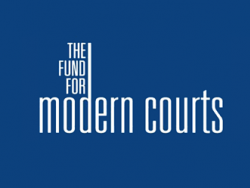
Paper: Court Simplification In New York State: Budgetary Savings And Economic Efficiencies (Modern Courts 2013)
This paper by the Committee for Modern Courts offers an analysis of the impact of simplification and concludes that in addition to the many substantive advantages of court simplification, including making our courts more understandable to the public and i ...
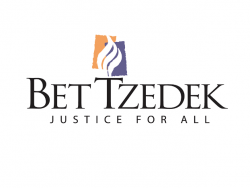
Report: Making Self-Help Work: Bet Tzedek’s Conservatorship Clinic (Bet Tzedek 2013)
Since 2007, Bet Tzedek Legal Services has been running a self-help conservatorship clinic in partnership with the Los Angeles Superior Court. Originally designed to serve 150 self-represented litigants per year, the program served more than 1,400 self-re ...
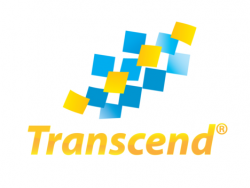
Report: A Comparative Readability Study of Plain Language Court Forms (Mindlin 2012)
This article presents the results from the first quantitative readability study of plain language court forms in the United States. Sixty citizens on a jury panel were selected to respond to brief questionnaires that tested relative comprehension of plain ...

News: Forms in Your Pocket: Mobile Solutions Are Nearly Ready to Scale (Pew Research Center 2016)
According to the Pew Research Center's Internet and Technology Mobile Fact Sheet (pewresearch.org), sixty-four percent of American adults own a smart phone (www.pewinternet.org/fact-sheets/mobile-technology-fact-sheet/), and legal aid organizations i ...
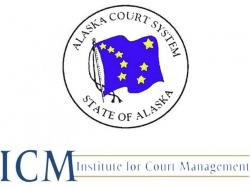
Article: Faster, Cheaper & As Satisfying: An Evaluation of Alaska’s Early Resolution Triage Program (Marz 2016)
The Alaska Court System, in partnership with the Alaska Pro Bono Program, created the Early Resolution Program (ERP) to address many issues with which courts across the country are grappling: how to efficiently and effectively manage divorce and custody c ...
Article: Access to Justice: The Emerging Consensus and Some Questions and Implications (Zorza 2011)
In this 2011 article, Richard Zorza writes that there is a broad emerging general operational consensus within the relevant legal community- courts, bar and legal aid- about the approaches needed for a comprehensive solution. He notes that the four key el ...
Article: The Access To Justice “Sorting Hat” Towards A System Of Triage And Intake That Maximizes Access And Outcomes (Zorza 2012)
In this seminal article, Richard Zorza discusses the fact that we know little of the processes by which the millions of people who approach courts, legal aid intake systems, and hotlines are directed into them, or the access services they do or do not rec ...
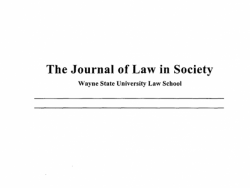
Article: Consumer Centric Design: The Key to 100% Access (Alteneder, Rexer 2015)
These authors, like many in the justice sector, believe that we are at a unique time and that through the integration of key innovations we can move towards 100% access to justice, defined by the authors as a system in which some form of effective legal a ...
Article: Some First Thoughts On Court Simplification: The Key To Civil Access And Justice Transformation (Zorza 2013)
From the Abstract: Given the discrepancy between access to justice needs and the resources that are realistically made available, current incremental approaches are almost bound to fail. The only realistic path to providing 100% of litigants with meaningf ...
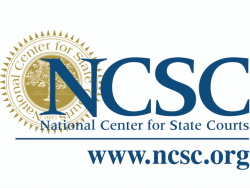
Paper: Non-Lawyer Legal Assistance Roles (Clarke 2015)
The Utah Supreme Court has created a committee to study the possibility of creating a limited license legal technician- or something along those lines- in Utah. Their report is due out at the end of November. As part of the committee's work, Tom Clar ...